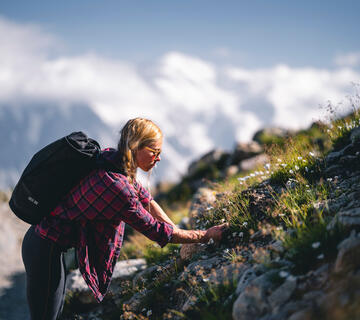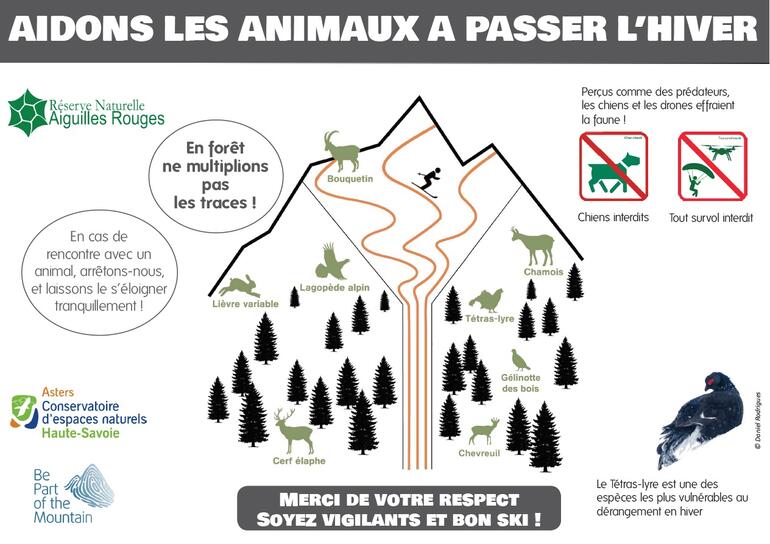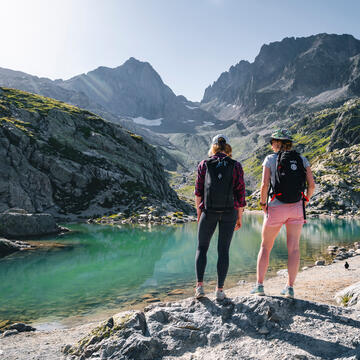Good practices in the natural environment

Some simple actions to preserve nature

Les animaux sauvages ne peuvent résister aux rigueurs de l’hiver en montagne qu’en économisant leurs réserves d’énergie. Par une meilleure connaissance de la vie sauvage, vous pouvez éviter tout dérangement inutile et saisir les secrets de la nature.
Pour se protéger, la faune alpine s’abritent en forêt (chamois, cerf) ou dans des igloos (tétras-lyre et lagopède).
En pratiquant le ski de randonnée ou des raquettes nous « entrons » dans leur espace de vie.
Si nous nous en approchons trop, leur seul réflexe est la fuite. Cette fuite engendre une dépense d’énergie inutile. Les dérangements répétés affaiblissent les animaux sauvages.
Plus la zone dans laquelle nous évoluons est boisée (lisière de forêt et forêt), plus le risque de rencontrer des animaux sauvages est grand.
Nous devons réduire nos besoins en espace, en ne multipliant pas les traces et en restant sur les itinéraires.
En cas de rencontre avec un animal, arrêtez-vous et laissez-le s’éloigner tranquillement.
Au-dessus de la limite de la forêt, les animaux sont plus rares donc je peux me déplacer plus librement.
The right thing to do during summer activities
To enjoy and admire the nature that surrounds us for a long time to come:
- Don't throw your rubbish in the nature
- Stay on the main trail and don't use shortcuts
- Find out about the regulations of the nature reserves
- Respect the rules of bivouacking: basic camping (with or without a tent) + one night only + set up at sunset and dismantle at sunrise. In Haute-Savoie nature reserves, bivouacking is authorised from 7pm to 9am.
- Fires are not allowed (use of a stove recommended)
- The use of speakers is forbidden
- Rubbish and toilet paper must be brought down
At the lakeside :
- Do not swim or wash your dishes in the lakes
- Avoid trampling the wetlands
- Do not put water sports equipment (buoys, paddles, etc.) in the water
- Do not throw anything into the lake (stones, waste)













